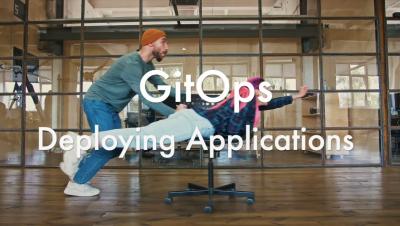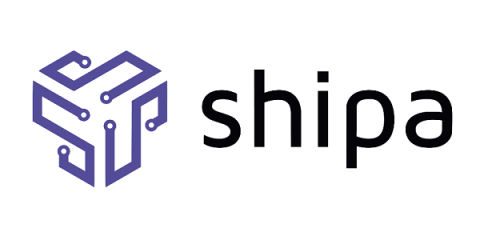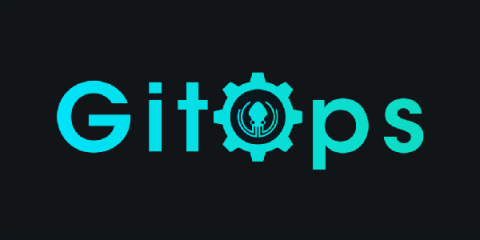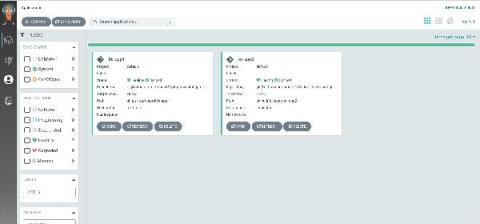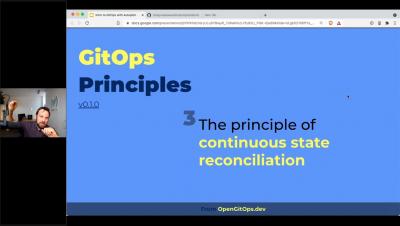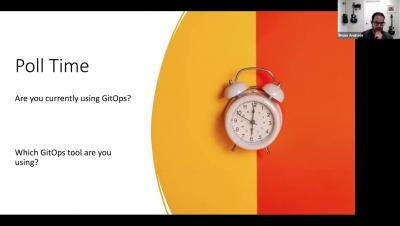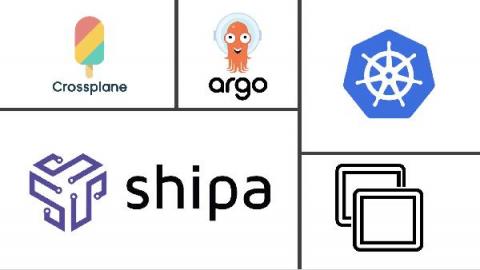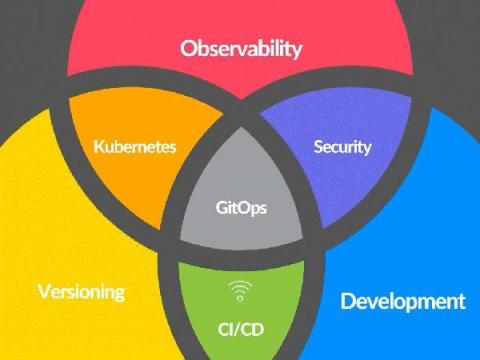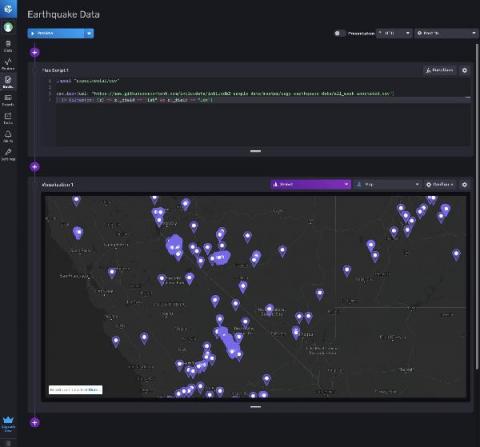Operations | Monitoring | ITSM | DevOps | Cloud
GitOps
The latest News and Information on GitOps and related technologies.
GitOps Workshop - Deploying Applications
GitOps is one method used by teams to deploy microservices, but challenges usually arise when deploying applications across multiple clusters and environments. For your GitOps initiative to be successful, you should consider implementing an application operating model. In this second workshop we covered.
What is GitOps?
This article was written by a guest author. Not long ago, if we wanted to put our code into production, we needed to manually configure a server, our infrastructure, that would host our app or database. This manual process is not only time-consuming, but also prone to errors. That is why at present, developers chose to create “scripts” that are in charge of configuring the infrastructure These “scripts” are known as Infrastructure as Code (IaC).
GitOps Beyond Kubernetes
The idea to fully manage applications, in addition to infrastructure, using a Git-based workflow, or GitOps, is gaining a lot of traction recently. We are seeing an increasing number of users connecting their Shipa account with tools such as ArgoCD and FluxCD. Based on that, we conducted multiple user interviews to understand some of the challenges teams face when implementing GitOps, especially those introduced or faced by their developers.
GitOps workflow with ArgoCD, Crossplane, and Shipa
GitOps Workshop
On August 11th, 2021, we conducted a workshop to discuss implementing a GitOps workflow using ArgoCD, Crossplane, and Shipa. We were overwhelmed by the hundreds of people who registered for the session. We believe it shows a few important challenges have to be solved for GitOps to become mainstream across different enterprises. While GitOps brings many benefits, we often see teams facing challenges.
The Evolving World of GitOps and Observability
Is GitOps changing observability as we know it? GitOps has been the buzz word in the DevOps space for several years. GitOps, to those that are not familiar, is an operational methodology for DevOps that leverages a continuous deployment approach with Git as the single source of ‘truth’ for declarative control over both infrastructure and applications.
Use InfluxDB with GitHub Actions for GitOps, CI/CD, and Data Transformation
GitHub Actions are a powerful way to add automation to any source code repository. When you take that power and connect it with InfluxDB, you get an amazing combination that allows you to automate data generation, manage GitOps workflows, and a whole lot more. This post will highlight some of the interesting ways to use InfluxDB and GitHub Actions.


